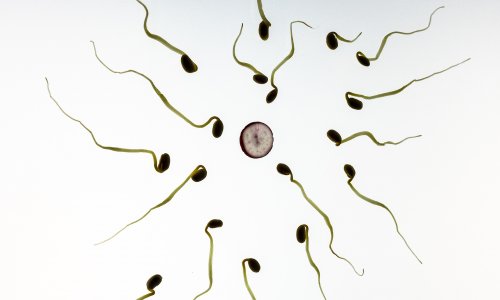News • The blunt truth
A few joints may not harm men’s sperm
Researchers investigating the effect of cannabis smoking on men’s testicular function have made the unexpected discovery that it is linked to higher sperm counts and higher testosterone levels among moderate users compared to men who never smoked it.
Source: Unsplash/Paul Wong
The study is published in Human Reproduction, one of the world’s leading reproductive medicine journals. Previous studies had suggested that cannabis (also known as marijuana) had an adverse effect on sperm production, especially among heavy users. However, the effect of moderate consumption has been less clear. The principal investigator of the current study, Jorge Chavarro, Associate Professor of Nutrition and Epidemiology at the Harvard T.H. Chan School of Public Health, Boston, USA, said: “These unexpected findings from our study highlight that we know too little about the reproductive health effects of cannabis and, in fact, of the health effects in general, to make strong statements about the impact of cannabis on health, with the possible exception of mental health. We know a lot less than we think we know.”

Prof Chavarro and colleagues looked at the effect of smoking an average of two joints a week among 662 subfertile men attending the Massachusetts General Hospital Fertility Center between 2000 and 2017. They found that the 365 men who had ever smoked cannabis had significantly higher sperm concentration than the 297 men who had never smoked it – 63 million sperm per millilitre of semen (million/mL) compared to 45 million/mL – after adjusting for factors that could affect the result such as age, abstinence time, smoking, and intake of coffee, alcohol and cocaine. There were no statistically significant differences in sperm concentration between current and past cannabis smokers. Among men who had ever smoked cannabis, those who smoked it more often had testosterone levels an average of eight nanograms per decilitre (ng/dL) higher than those who used it less often.
Only 5% of cannabis smokers had estimated sperm concentrations below 15 million/mL (the World Health Organization’s threshold for “normal” levels) compared to 12% of men who had never smoked cannabis. Cocaine use was associated with a higher estimated proportion of men (12 %) having sperm concentration below WHO reference values.
The first author of the study, Dr Feiby Nassan, a postdoctoral research fellow at the Harvard T.H. Chan School of Public Health, said: “Our findings were contrary to what we hypothesised at the start of the study. However, they are consistent with two different interpretations. First, these findings are consistent with a U-shaped relation whereby low levels of cannabis use could benefit sperm production due to the well-known role played by the endocannabinoid system, but potential beneficial effects reverse at higher levels of use. An equally plausible interpretation is that our findings could reflect the fact that men with higher testosterone levels are more likely to engage in risk-seeking behaviours – including drug use – and that the relations we see between cannabis smoking, sperm counts and testosterone levels are because men with higher testosterone, within normal levels, have higher sperm counts and are more likely to smoke cannabis.”
Since semen quality is a poor predictor of fertility, these findings should not be interpreted as implying better fertility with cannabis use
Jorge Chavarro
The researchers warn that their findings should be interpreted with caution and more research is needed to look at the effects of cannabis use on fertility. There are several limitations to the study, which could raise the possibility that their results are not explained by a true underlying biological mechanism, but are spurious associations. Prof Chavarro said: “First, we do not know to what extent these findings may apply to men in the general population. Second, since semen quality is a poor predictor of fertility, these findings should not be interpreted as implying better fertility with cannabis use. An equally important limitation is the fact that most of the data were collected while cannabis was illegal in Massachusetts, so it is difficult to know to what extent men may have under-reported use of cannabis because of social stigma or potential consequences related to insurance coverage for infertility services.”
The men taking part in this study completed a self-administered questionnaire that asked them about whether they had ever smoked cannabis, if they currently smoked it, the number of joints they smoked a week, whether they ever quit and for how many years, age of starting to smoke it, the last time they smoked cannabis and the total duration of cannabis smoking. The questionnaire asked similar questions about cocaine use, medical history, lifestyle and demographic information. They provided semen and blood samples, which the researchers analysed for information on sperm and reproductive hormones. The researchers are continuing to study the effects of cannabis smoking in couples and how this could affect the outcomes of treatments for infertility.
Source: Harvard T.H. Chan School of Public Health
06.02.2019











